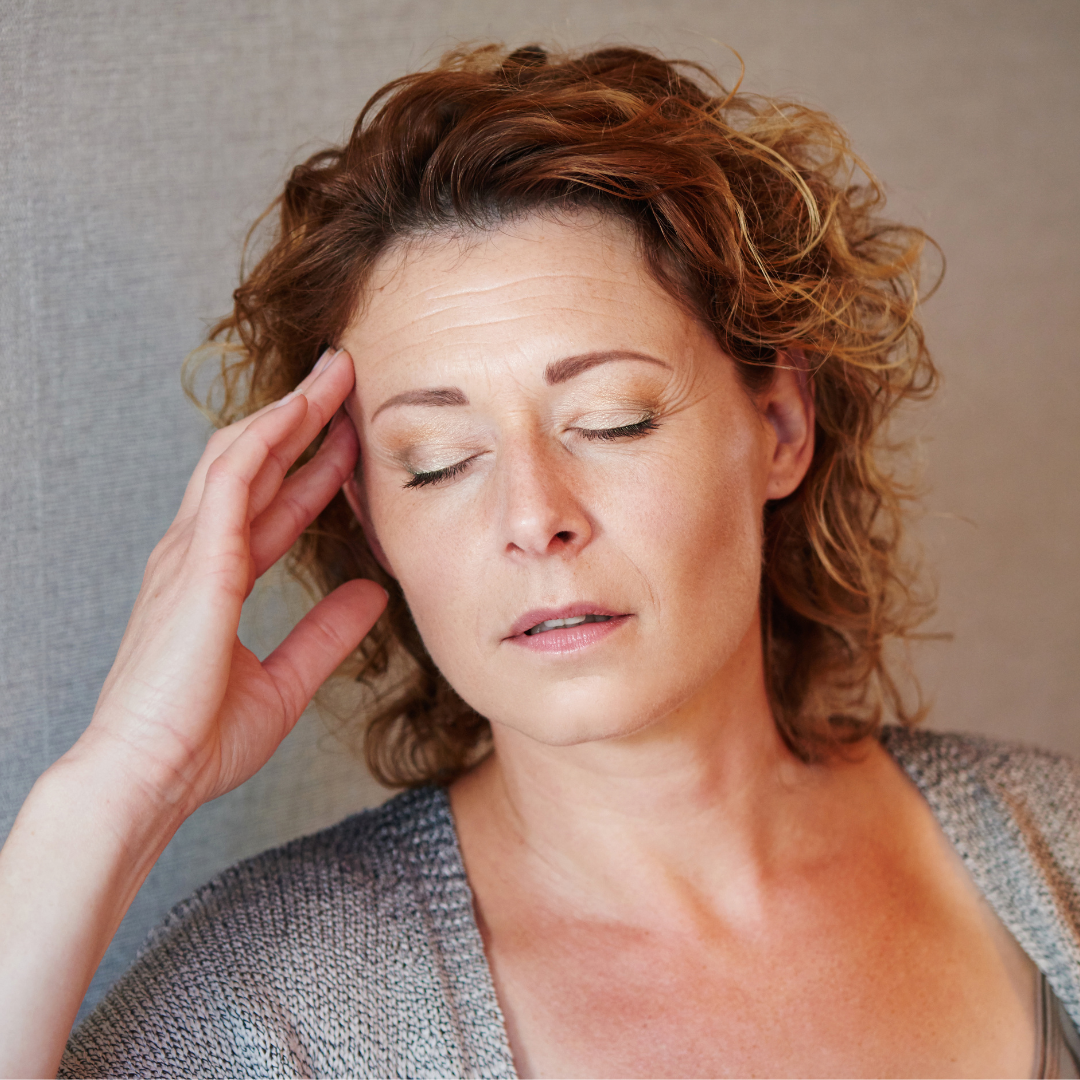
Tracey Boyd Hall's Menopause Journey
There I was in my early 50’s; the fittest I had ever been, having run my first marathon and about to return part-time to university, a prospect that excited and motivated me. So why did I feel so terrible? Constant feelings of frustration, being overweight and feeling bloated, tearful, stressed and generally low. Some people suggested “post-marathon blues” but three months post marathon I still didn’t feel any better. These symptoms were affecting me, my family and my work.
When you fall pregnant your GP/NHS can’t provide you with enough literature; yet when you turn 40 there is hardly any mention of general health education on menopause and what to expect. The first inklining that I was menopausal came after my husband talked to a business associate who suggested that those feelings (mood swings, generally grumpiness, short term memory loss and a host of other symptoms) were the same symptoms his wife experienced when she went through her menopause. Let’s put aside the frustration I felt by this suggestion arising from two middle-aged blokes with no medical background, the conversation prompted me to complete a menopause symptom checker. Hey presto! The results suggested I was going through menopause.
Subsequently, I spoke to my GP who suggested, based on my family’s medical history, that I avoid the HRT route but rather take a course of mild antidepressants. That’s where the GP support ended. So, I undertook my own research. The science led me to agree with my GP that HRT wasn’t the route I wanted to go down, but I also felt that antidepressants weren’t the solution either - this felt like treating the symptoms and not the cause. Initially that left me with healthy diet and exercise. Although not a magical cure, evidence showed that characteristics of menopause could be reduced through diet and exercise.
At my worst point (mood swings, low self-esteem, terrible joint pain, lingering tiredness and a huge amount of apathy), I opted to visit a psychologist to see if talking therapy could improve my mental state. Luckily, the psychologist I saw had also experienced a similar journey during menopause. Her symptoms, short-term memory loss, brain fog and poor concentration, led her to believe she was suffering from a brain tumour, however, further discussions with her GP led to a diagnosis of menopause.
The opportunity for me to talk through my symptoms and how they impacted my life was liberating. The conversations helped me to realise that accepting the changes I was experiencing was crucial. I couldn’t carry on fighting them and had to accept this as a new chapter. I had to find tools to support me. For my short-term memory loss, we discussed the use of lists and schedules which I would revisit throughout the day. On a more general note, we discussed working more slowly, rechecking my work and being disciplined about my diet and exercise.
Three or four years have now passed. Many of my symptoms have dissipated whilst others linger and will do for some years, but I am out of my dark spot. I am happy now. My moods are stable and I am managing to run my family, assist in running our consultancy and continue with my degree. I still have to be disciplined with my diet and exercise, ensure I get sufficient sleep and manage my stress, but otherwise I can do everything I want to, all be it a bit more slowly and carefully than I used to.
Talking to other menopausal women I realise everyone’s journey is unique. I believe there should be more support and awareness from your GP/NHS and generally more help in understanding your own symptoms (especially emotional) to be able to accept what results you can expect. Support, be it a group, a friend or your doctor is important. But for me it is about accepting that you have changed, embracing those changes and finding solutions that best suit you.
References
Abshirini, M. Siassi, F. Koohdani, F., Oorbani, M., Khosravi, S., Hedayati, M., Aslani, A., Soleymani, M., Sotoudeh, G. (2018) ‘Dietary total antioxidant capacity is inversely related to menopausal symptoms: a cross-sectional study among Iranian postmenopausal women’, Nutrition 55 pp 161–167
Alkhatib, A. Klonizakis, M (2014) ‘Effect of exercise training and Mediterranean diet on vascular risk reduction in post-menopausal women’, Clinical Hemortheology and Microcirculation 57 pp 33-47
Beezhold, B., Radnitx, C. McGrath, R., Feldman, A. (2018) ‘Vegans report less bothersome vasomotor and physical menopausal symptoms than omnivores’, Maturitas 112 pp 12-17. Available at: www.elsevier.com/locate/maturitas (Accessed: 20 November 2018)
Currie H, Abernethy K, Gray S. (2017) British Menopause Society vision for menopause care in the UK: Endorsed by Royal College of General Practitioners, Faculty of Sexual and Reproductive Health, Royal College of Nursing, and Royal College of Obstetricians and Gynaecologists. Post Reproductive Health; 23(3), pp.105-109.
Menopause Care (Available at: https://menopausecare.co.uk/wp-content/uploads/2021/08/Menopause-Symptoms-Checklist.pdf) (Accessed: 30 December 2021)
NICE (2015) Available at: https:/www.nice.org.uk/news/article/women-with-symptoms-of-menopause-should-not-suffer-in-silence (Accessed: 02 December 2018)
Find more blogs like this:
www.harleystathome.com | Instagram @harleystreetathomemenopause
Facebook: Search Harley Street at Home: Diagnosis, Symptoms & Treatments or Harley St at Home: Lifestyle, Self-Care and Lifestyle to join our private community



